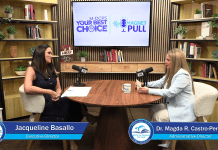 Music therapy interventions can be designed to promote wellness, manage stress, alleviate pain, express feelings, enhance memory, improve communication and promote physical rehabilitation. Music Therapy can be defined as an established health profession in which music is used within a therapeutic relationship to address physical, emotional, cognitive and social needs of individuals. *
Music therapy interventions can be designed to promote wellness, manage stress, alleviate pain, express feelings, enhance memory, improve communication and promote physical rehabilitation. Music Therapy can be defined as an established health profession in which music is used within a therapeutic relationship to address physical, emotional, cognitive and social needs of individuals. *
Researchers** conducted a pilot study involving 12 children between 4 and 6.5 years of age with developmental ages of between 1 – 3.5 years, to monitor the effects of music therapy on the children’s cognitive development. The children were randomly placed into one of two groups; the children in the first group received individual music therapy for a period of three months, and the children in the second group were used as a control group.
The results, after the first three months, revealed significant developmental improvements including better hearing and speech, improved eye-hand coordination and improved communications skills in the children in the music therapy group. Furthermore, when the groups were reversed for the following three months, the second group who were then receiving music therapy also demonstrated significant improvement in all of the above mentioned areas.
Below is information as to how music nourishes and helps children’s development socially, emotionally, academically, physically and mentally.
SOCIAL & EMOTIONAL BENEFITS
Facilitates emotional release and expression of feelings. By making music, children process emotions that otherwise could result in negative behavior.
Develops listening skills, non-verbal and verbal communication. Music gives children the opportunity to express themselves without verbal language, which becomes an excellent tool for those who have communication problems. In addition, music assists in the development of verbal communication, speech, and language skills through shared play, turn-taking, listening and responding to another person.
Empowers and promotes teamwork and leadership. In order to create a musical piece, each child must have a unique role in the group and the ability to work as part of a team.
PHYSICAL AND WELL-BEING BENEFITS
Enhances the cardiovascular system. Researchers *** have shown that the emotions aroused by joyful music have a healthy effect on blood vessel function. Music, selected by study participants because it made them feel good and brought them a sense of joy, caused tissue in the inner lining of blood vessels to dilate (or expand) in order to increase blood flow. On the other hand, when study volunteers listened to music they perceived as stressful, their blood vessels narrowed, producing a potentially unhealthy response that reduces blood flow.
Develops eye-hand coordination and reflexes. Playing an instrument requires rapid finger and wrist movements, hand-eye coordination and good reflexes. The rhythmic component of music is very helpful in organizing sensory systems. As a result, auditory processing and other sensory-motor, perceptual/ motor, gross and fine motor skills can be enhanced through music therapy.
Manages stress. It is known that joyful and calm music has a sedative effect on children, thereby allowing them to better control their emotional reactions.
ACADEMIC & MENTAL BENEFITS
Enhances memory and develops concentration. Listening to music facilitates the recall of information and improves the duration and intensity of concentration. The process of creating music involves a lot of concentration because children need to listen, follow rhythms and stay focused.
Improves mathematics and reading.Music activates a widespread bilateral network of brain regions that promote the ability to visualize spatial patterns and mentally manipulate and order them over a period of time (basic skills utilized in math and reading).
Teaches notion of space, time, rhythm and pitch. By learning music, children learn those basic concepts that will be useful for other areas of their lives, from sports to science and technology.
As you can see music has the ability to heal, teach and improve lives. Barbara Crowe, past president of the National Association for Music Therapy, affirms: “Music therapy can make the difference between withdrawal and awareness, between isolation and interaction, between chronic pain and comfort, between demoralization and dignity.”
*American Music Therapy Association
**D. Aldridge, G. Gustoff and L. Neugebauer. A Pilot study of music therapy in the treatment of children with developmental delay. Complementary Therapies in Medicine(1995)3,4,197-205
***“Positive Emotions and the Endothelium: Does Joyful Music Improve Vascular Health?” Miller M, Beach V, Mangano C, Vogel RA. Oral Presentation. American Heart Association Scientific Sessions, 11/11/2008.
Jeannette Blanca Egozi M.A., CCC-SLP, CMHP, CSMC is a Bilingual Speech Language Pathologist, Certified Mental Health Professional and Stress Management Consultant. She is the Founder and current President of Playing the Game of Lifesm (PGLsm), whose mission is to develop social skills, build positive character attributes, and promote lifelong wellness through arts-based prevention programs. PGL’s Enrichment Center is located in Miami Beach, Florida. For more information, call 305-864-5237 or visit www.PlayingTheGameOfLife.com.






